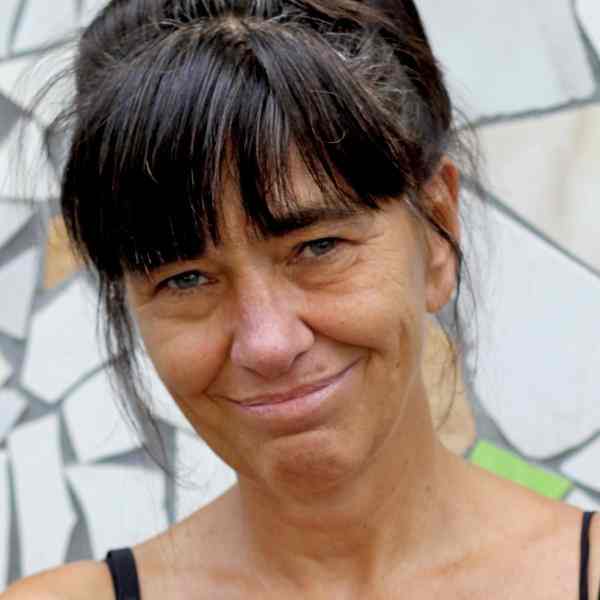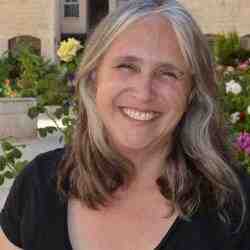Introduction
Edit Gyorik is combining individualized treatment with programs of academic study to accelerate young drug addicts' reentry into Hungarian society.
The New Idea
Edit's approach to integrate drug rehabilitation and academics helps youth already at a distinct disadvantage get back on the proper path. Noticing the intersection between drug abuse and school attrition rates, Edit has developed a community-based approach that allows young people to overcome their drug addictions without the use of medications. By placing her model in the hands of both education and rehabilitation professionals, young people struggling with the addictions receive rehabilitation services as well as formal education.
Structured as the Belvárosi Tanoda Foundation, Edit's plan combines three specialized programs to meet youth needs. The Tanoda High School offers individualized and flexible academics to bring young people up to speed in their learning. A 24-hour rehabilitation site addresses treatment needs while a 12-hour facility provides care for drug users. Edit's extensive experience has helped her develop a sustainable model, introducing new solutions to one of Hungary's growing social problems.
The Problem
Drug abuse in Hungary has risen dramatically in the last two years. The problem has only been acknowledged in schools in the last five years. Recorded deaths from drug use rose from 204 in 1995 to 339 in 1997. Between 1992 and 1995, the percentage of high school students who said they used drugs increased from 11.6 percent to 15.7 percent. According to certain estimates, the number of young people using drugs has doubled in the past four years while the number of younger children experimenting with drugs has increased rapidly as well. Each year a growing number of children are expelled from alternative high schools designed to deal with deviant youth.
While there is public awareness of the drug problem in Hungary, a lack of viable solutions has effectively stalled any progress. There are a number of drug prevention programs and 15 rehabilitation institutions in Hungary, but many have proven inadequate. The majority of programs consist entirely of lectures on drug addiction and do not provide follow up activities or reintegration services for youth. Institutions often treat only the symptoms of a young person's addiction instead of exploring the basis of the problem. There has been limited success in preventing students from dropping out of school because of drug abuse. Some schools lack even enough money to fulfill the services required by law, e.g., ensuring the presence of psychologists or social workers. Severe problems can also appear in the family environment. Family members are often not prepared to cope with addictions and find a limited base of support from community organizations and schools.
A new law in Hungary dictates clear consequences for drug users but offers limited help for overcoming addiction. In 1998 the newly elected government enacted one of the most severe drug laws Hungary had ever seen, declaring that anyone caught with drugs could be imprisoned. Local authorities were to provide daily six-hour treatment sessions for drug users, but because of a lack of funds, the support provision was not implemented. The failure to address academic issues compounds the problem, as evidenced by a recently developed national drug strategy program, which was approved without reintegration services.
The Strategy
Edit has designed a model for drug rehabilitation that integrates rehabilitation work with academic study. By meeting the complex needs of marginalized youth, Edit hopes to reduce the number of young people dropping out of school.
Edit is introducing a new approach to drug rehabilitation by which educational and social rehabilitation services complement each other, and thus give clients greater capacity to deal with the reintegration process. The Belvárosi Tanoda Foundation provides a complex program with three main departments. The Tanoda High School provides individualized and flexible teaching for marginalized youth. The Stop Group operates as a supportive 24-hour "drop in" environment for drug rehabilitation, and the daycare center provides 12-hour care for the children of drug users.
Edit adapts her work for each individual. She reaches out to all troubled youth: young people in prisons; individuals from the local communities; recovered drug addicts, and others. She works with their individual needs, evidenced by the complex individualized education and rehabilitation programs her staff creates for clients. As an example, the Stop Group provides a multitude of services and opportunities like self-help, studying, and work therapy. It also offers social services, daily treatment services, and is open 24 hours a day. Study periods, a beginners' group, personal development, mentoring, creative workshops, and a program specifically targeting young people in prisons ensures plenty of opportunities for a variety of Tanoda clients. The social program includes drama production, creative activities, film clubs, self-help groups against relapse, drug prevention work, newspaper production, and parent groups. To promote tolerance, the institution also provides meeting spaces for many different groups, including Christian homosexuals, Irish musicians, and Roma cultural groups.
Edit is continuing to use her expertise to reduce the number of school dropouts and spread her drug rehabilitation techniques. By reaching out to primary and secondary schools with drug prevention programs, Edit is targeting children early so they do not end up at Tanoda. Clients from Tanoda often assist by sharing their experiences with the younger students. Edit focuses on changing schools' behavior and challenges teachers by introducing new approaches on how to deal with deviant students. She has started working closely with the Ministry of Youth and Sport to reduce the number of dropouts. Although the ministry is working on incorporating Edit's "drop in" idea into the national drug strategy, Edit wants to expand their support to include more complex care options for drug addicts.
Edit is expanding her ideas and methods in other creative ways. Several schools in other districts of the capital and one in the countryside have adopted her methods for their own disadvantaged students. In the next 10 years, Edit wants to focus on fostering the next generation of people working in the field. To ensure the education of new professionals, Edit has made Tanoda a fieldwork site for university students studying cultural management or social work. Just last year, several thousand students studied or wrote papers about Tanoda.
The Person
In the beginning of the 1980s, Edit was hired to work in a large "culture house" to deal with the hundred young people loitering around the center who were considered deviants. Edit organized clubs and arranged family visits in order to create a reassuring sense of community for the youth. She worked with university students to design a psychology training program and learned a significant amount about the particular needs of this group of young people. In 1989 Edit visited similar projects designed to help disadvantaged youth but noticed that many programs were not dedicated or effective enough to make substantial change. This experience was the catalyst that led Edit to realize that helping these children was to be her mission in life.
In the year of the political changes, between 1989 and 1990, Edit began designing her own school for disadvantaged youth, one that focused primarily on preventing students from dropping out of school. In 1989 she founded the Downtown Tanoda Foundation School in order to work with homeless, addicted, and recently incarcerated youth. To find students she designed a search process and composed a list of young people suspended from normal high schools. Although it was difficult to convince schools to give out such information, Edit was eventually able to contact these students. She conducted interviews with the students, met their past teachers, and learned their personal stories and family backgrounds. She created a school designed both to fulfill the individual needs of these students and to provide services like psychological aid and social assistance. In order to increase the effectiveness of individualized programs, Edit and her team organized a new system of partners, by which children choose their partner teacher, make a half-year contract, and design the program they will adhere to. Currently there are 180 children studying at the school supported by a 40-member team.
After operating the school for some time, Edit discovered that a growing number of students were drug addicts. A group of people who had completed their therapy and were educated by Edit's school started "The Stop Group." With Edit's help, the young people designed a program that would offer continued support for ex-drug addicts as they reintegrated into society. At the same time, after two of her students were arrested, Edit designed an educational program for prisoners. She had to convince the prisoners' family members to give her their one-hour visitation period each month so that she could to talk to the students about their studies. The prison studying program expanded quickly. Edit persuaded top police leaders to let her and colleagues visit prisoners regularly. Edit's experience has opened her eyes to the complexity of problems youth face and has helped her determine that the only solution is to offer complex services and care.



